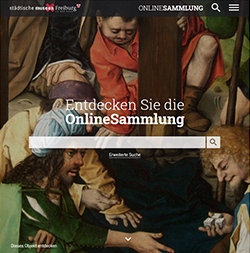Insights into the History of the Collection
Ernst Thomann
10.12.1858 – 29.3.1905
Ernst Thomann attended the Polytechnic School in Karlsruhe from which he graduated in 1882. He travelled to Chile in 1889 and worked for North and South American Construction Co. Between the years 1894–1899, he worked as an engineer on the construction of railways in Chile. At the time of his donation he lived in Valdivia.
His relationship with the museum was maintained through his brother, Karl Thomann, who also handled the correspondence with the museum directors. Karl Thomann was a city councillor in Freiburg. He opened a restaurant in 1882 and went on to open the Hotel Thomann in Belfortstraße 12 at a later date.
Thomann Donation
Ernst Thomann donated a collection of Mapuche ethnographic objects from Chile to the museum. In his letter to the museum, he notes that he acquired most of them in the cities of Valdivia and Victoria, the provinces of Cautín and Malleco and the Biobío region. The collection includes silverware, jewellery and textiles, as well as pots and urns. Thomann himself excavated the latter from graves. However, nothing is known about the exact circumstances of these excavations. The Thomann Collection contained a single natural history specimen, a grebe from Chile, which was added to the collection in 1901. There is no record of the specimen’s whereabouts in the museum’s files.
Hugo Ficke compiled a list of the most generous donors in 1905, whereby the Thomann donation is valued at 200 marks. Today there are almost forty ethnological objects in the museum's collection.





